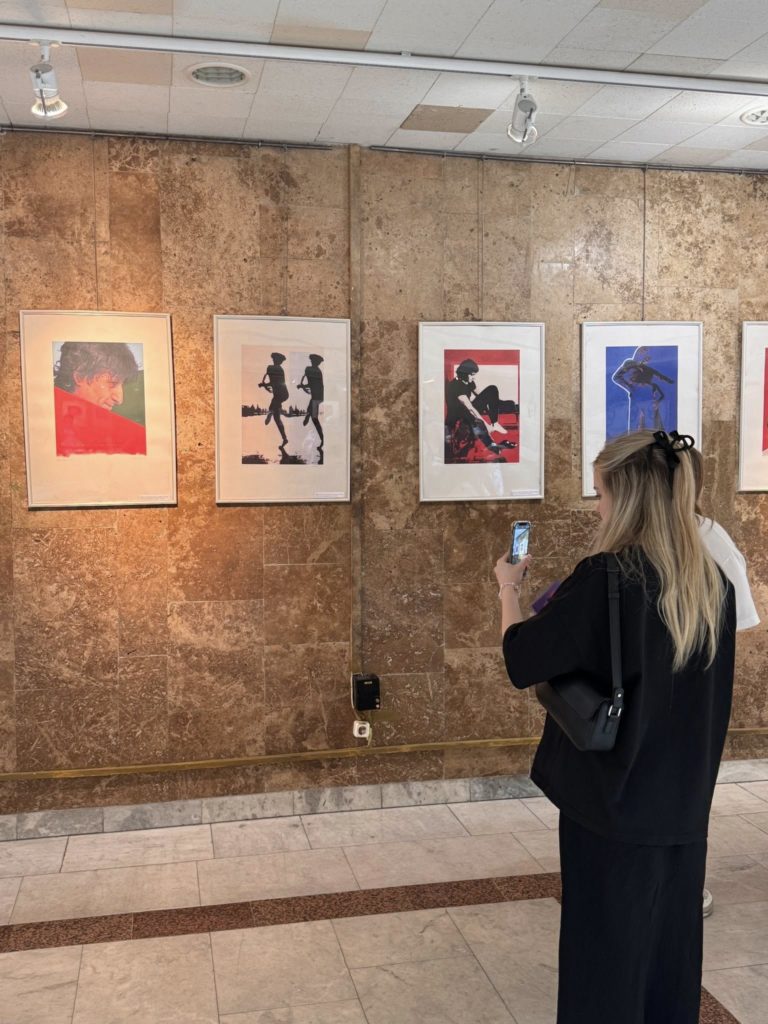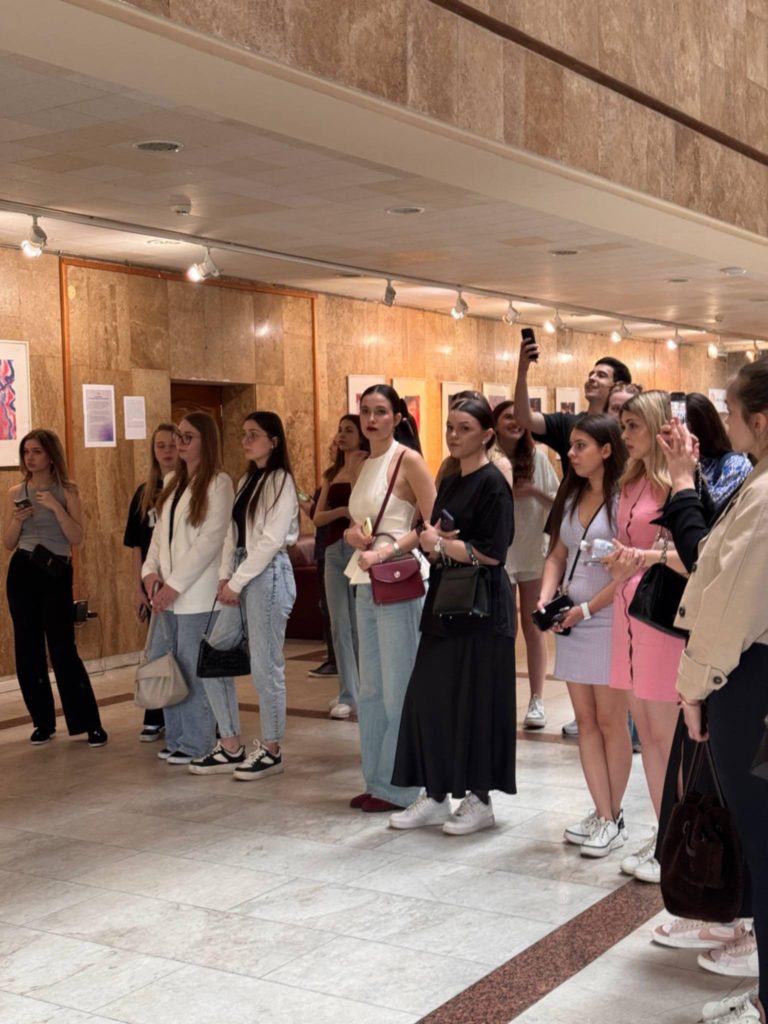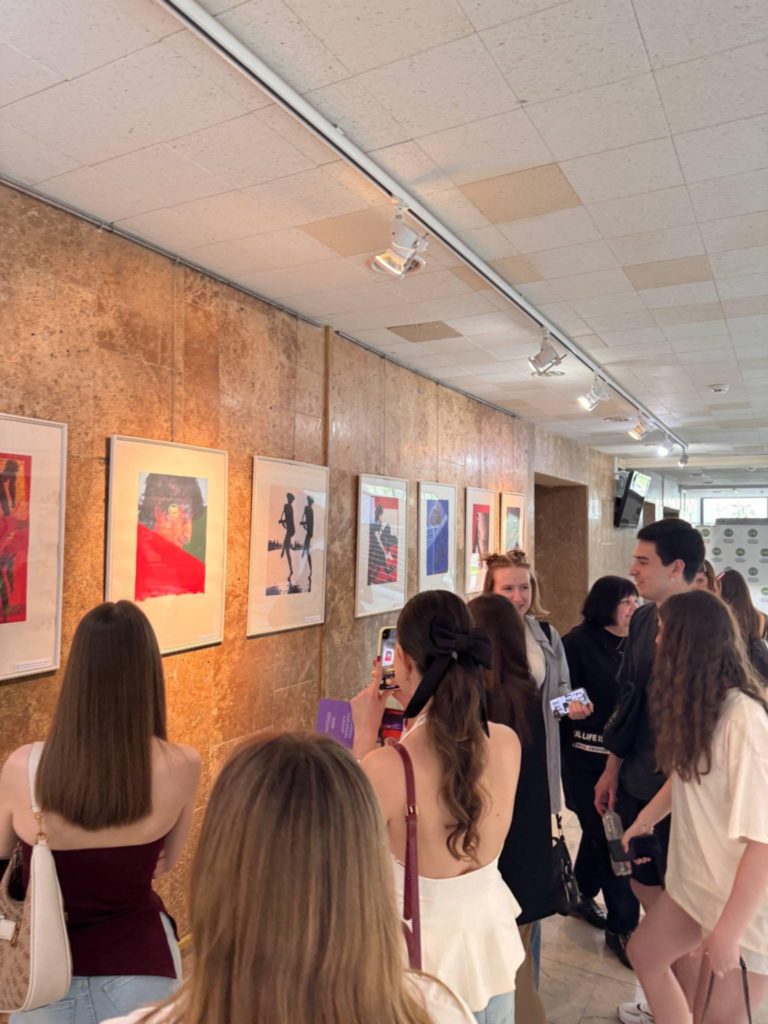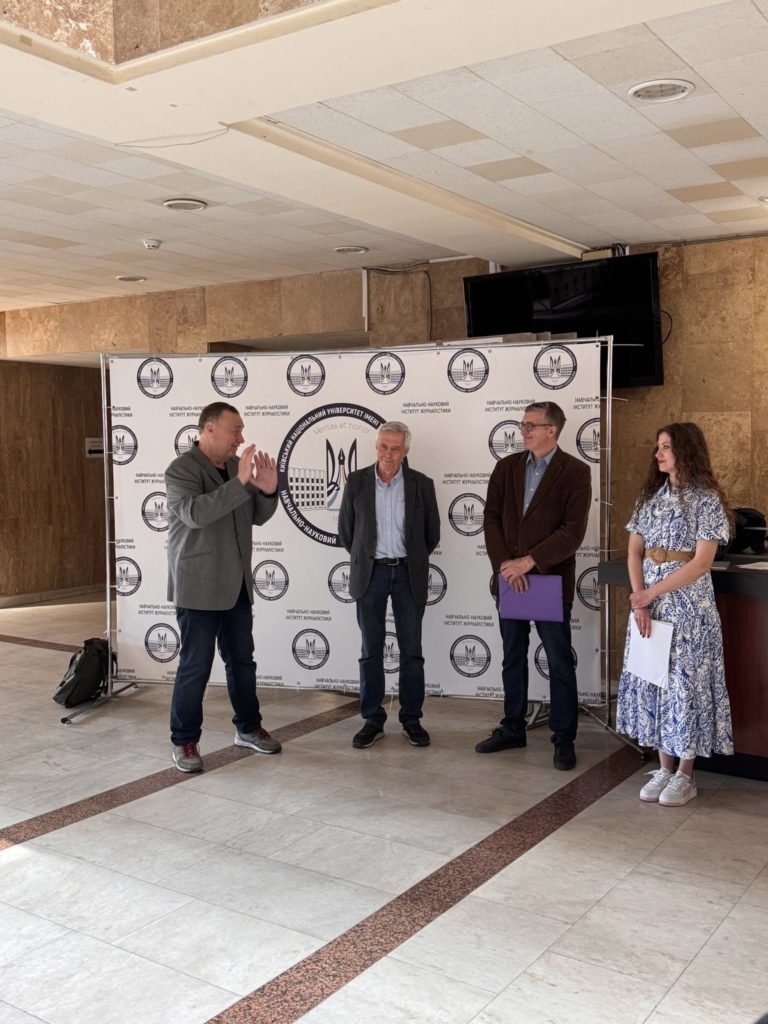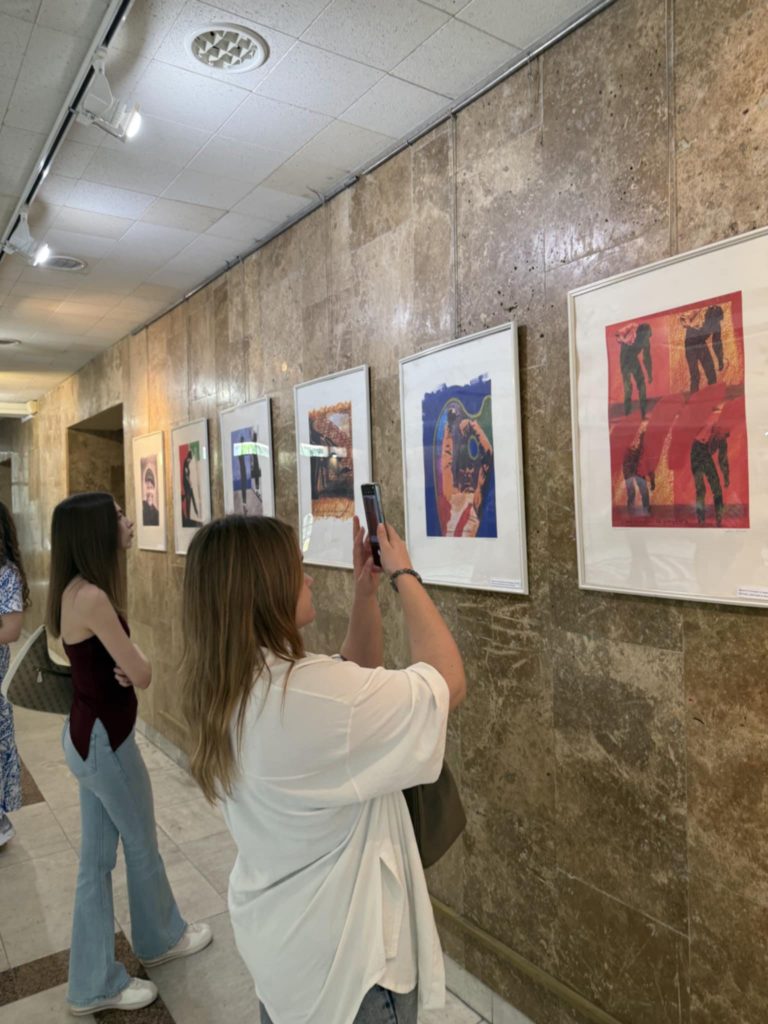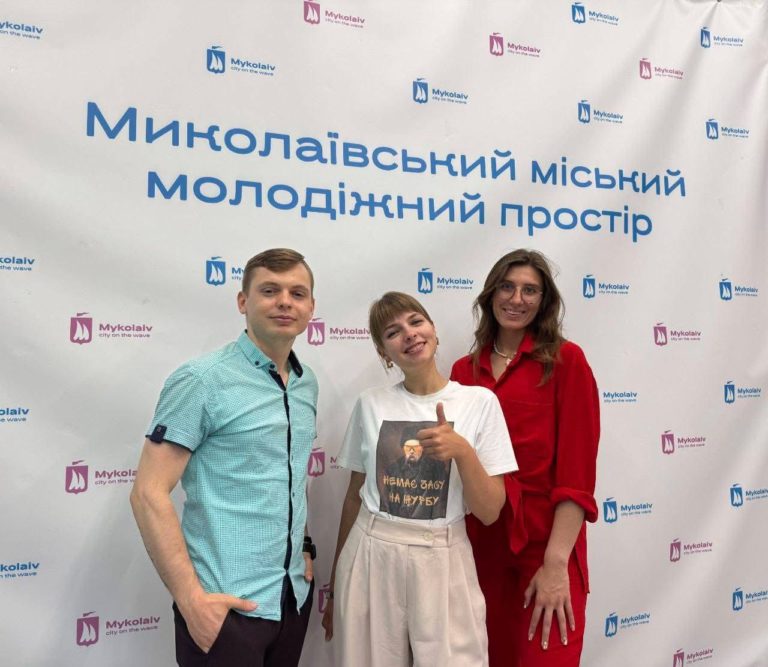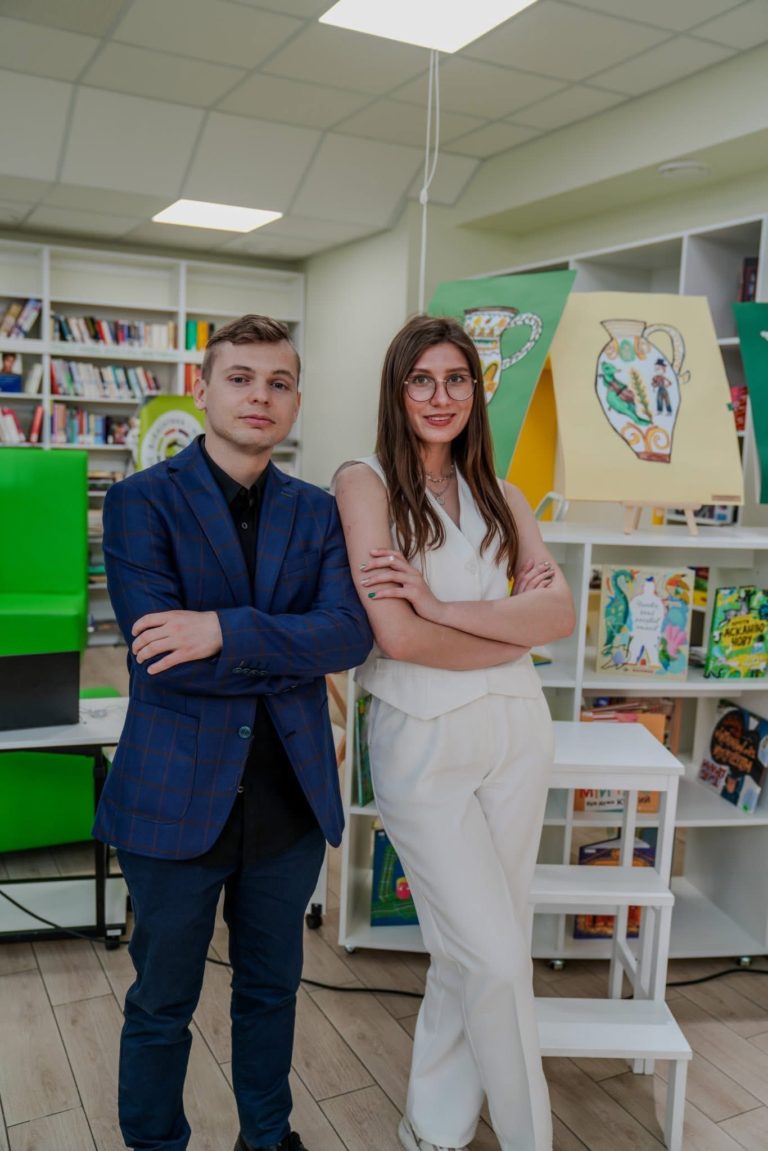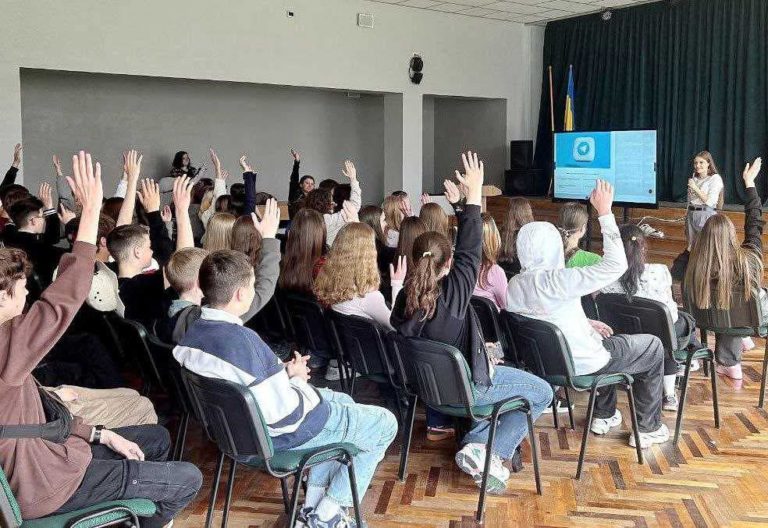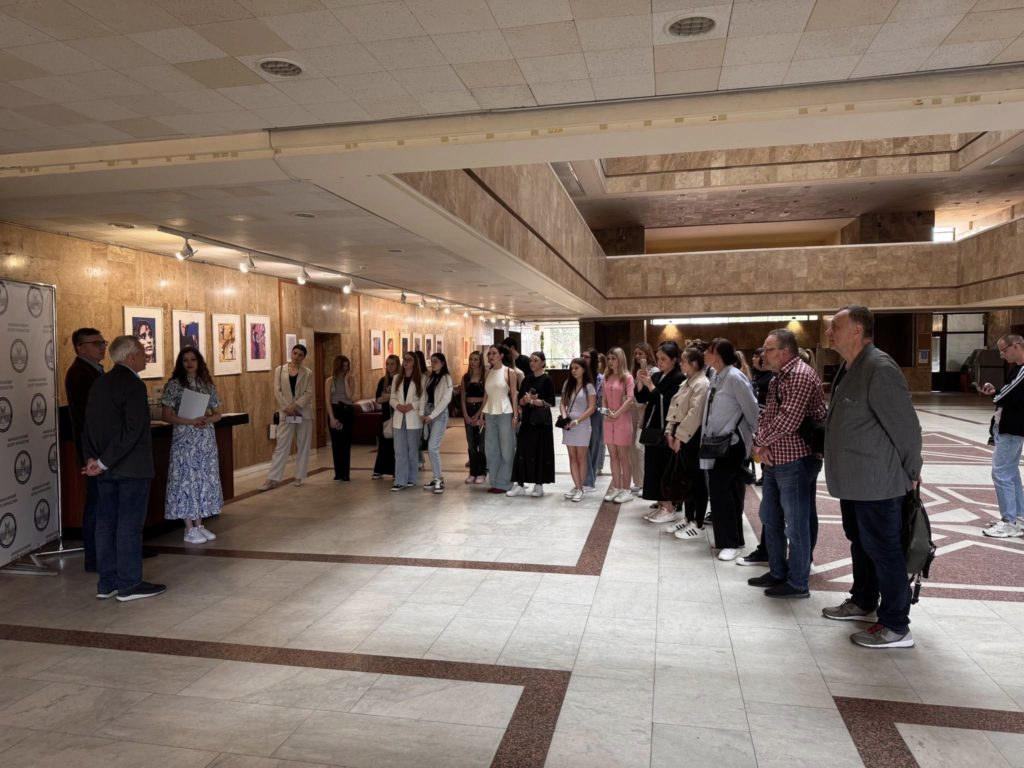
Can a painting change how we see the world—or at least make us pause and ask: what lies behind the image, and what is my perspective on it? That’s exactly the kind of experience offered by the works of Antonio Miró, whose exhibition was initiated by journalism students at Taras Shevchenko University, in collaboration with the editorial team of DeFacto and the creative center Democracy Through Culture. This is more than just an educational project—it’s a meaningful experience that inspires, provokes thought, and encourages deeper reflection.
Antonio Miró, who has collaborated with Ukrainian artists for many years and has always stood in solidarity with Ukraine, speaks through his work about defending universal human values and the connection between moral imperatives and resistance to dictatorial regimes. It is about solidarity, choice, and dignity—about mutual support, the strength of national resistance, and the importance of a culture of memory.
UNESCO leading expert Oleksandr Butsenko emphasizes: “His art is a form of critical thinking. Antonio Miró reinterprets past events, draws on symbols, and merges visuals with music, dance, and film. It’s a multidimensional expression — and it speaks to us here and now.”
According to Ihor Panchyshyn, visionary behind the Impreza biennale, it’s precisely these kinds of creative collaborations that give rise to spaces of strength and resilience—spaces for discovery, dialogue, and the birth of new meaning.
The exhibition “Values Triumph. Solidarity” explores how art can be a key to deeper understanding—not just as an object of observation, but as a search for global truths, fresh perspectives, and sometimes uncomfortable questions. As curator Kateryna Aksionova notes, Miró’s series of etchings also creates a space for dialogue—between youth, the past, and the present. It invites us not to accept what we see at face value, but to look closer.
The project is designed and implemented by the Souspilnist Foundations in cooperation with UNESCO Ukraine and with the support of 在ウクライナ日本国大使館 / Embassy of Japan in Ukraine. The project is part of UNESCO’s broader efforts to support the safety of journalists and freedom of speech in Ukraine.
